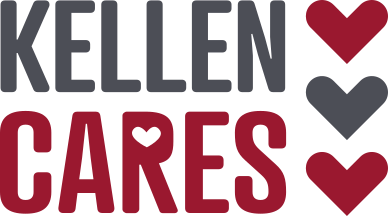Five Pillars of Mental Health
The most important thing you can do to help yourself be mentally healthy is by taking care of yourself in these following categories: Sleep, Nutrition, Mindfulness, Exercise and Social.
Sleep
Sleep helps foster mental and emotional resilience
Nutrition
What we eat greatly affects how we feel physically, cognitively, and emotionally
Mindfulness
Mindfulness can have a positive impact on the body and brain
Exercise
Exercise helps reduce anxiety and depression, and can improve cognitive function
Social
Interacting with others can boost well-being and decrease depression
Sleep
A good night's sleep helps foster both mental and emotional resilience, while chronic sleep deprivation sets the stage for negative thinking and emotional vulnerability. Following are some things to try:
Reduce screen time before bed (to not stimulate cortisol that tells the brain to be alert)
Avoid sugar late at night
Exercise regularly
When you wake up for the day, open the blinds, and awaken to the bright natural sunlight
Helpful Links:
Nutrition
The latest scientific advances in neuroscience and nutrition, along with our understanding of the mind-gut connection, have proven that how and what we eat greatly affects how we feel—physically, cognitively, and emotionally.
We’ve known for some time that exercise has a positive effect on mental health. Now there’s equally convincing proof that what we eat can in large part contribute to how we feel, too. A growing field of study called Nutritional Psychiatry is making some amazing discoveries regarding the link between nutrition and mental health.
Helpful Links:
Mindfulness
Mindfulness and meditation can have a significant positive impact on the health of your brain, body, and overall well being. Practicing mindfulness and meditation helps you feel more in control of your emotions and allows you to calmly respond to them as opposed to react to them.
Helpful Links:
Meditation programs/apps:
Breathing Exercises
Journaling:
Mindjournal.com (journal for men)
Exercise
Try to be physically active every day. This can be simply walking, running, body weight workouts or any other exercise you enjoy. Exercise improves mental health by reducing anxiety, depression, and negative moods while improving self-esteem and cognitive function. These benefits have been found to reduce social withdrawal as well.
Helpful Links:
Hiking Maps: Spokane; Coeur d’Alene; Eastern WA; WA State
Exercise links/apps:
Social and Spiritual Interaction
Interacting with others boosts feelings of well-being and decreases feelings of depression. Try volunteering, attending church, engaging in community centers, or taking a class. Reduce screen time to make room for social interaction such as game nights, meals with friends and family, joining social clubs or a sports team.
An increase in cognitive (mental) functioning is a potential benefit of volunteering. Volunteers have been shown to have reduced anxiety and depression and an overall sense of well-being. When you lend a helping hand to support a great cause, not only do you bring joy to the people who benefit, but you’ll feel more joy yourself.
Helpful Links:
Volunteer opportunities in the Spokane area:
Become a Big Brother
Sports, Activities, & Classes
YMCA offers classes and sports
Prayer and/or being a part of a religious or other spiritual group.
Young Life is for students from middle school to college and provides specific ministries aimed at ensuring every kid feels a sense of belonging.
Summit Church hosts and supports youth and young adult groups











